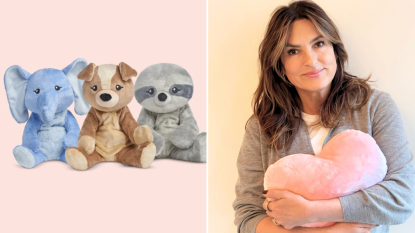Expert Advice: How Do I Stop Being So Envious of My Friends?
Don't let the little green monster ruin your life.

The little green monster we call “envy” can feel like it’s eating you alive sometimes. We all measure ourselves against others, but it hurts to feel like we’re always falling short. Here, our experts provide some simple tips to stop being so envious and turn comparison into self-compassion.
Meet our expert panel
- Sara Protasi, PhD, author of The Philosophy of Envy, is associate professor of philosophy at University of Puget Sound in Washington state.
- Liz Fosslien, co-author of the bestsellers No Hard Feelings and Big Feelings, regularly speaks about how leaders can develop inclusive teams. Her work has been featured by Good Morning America, TED, and NPR among others.
- Robert Leahy, PhD, author of If Only…Finding Freedom from Regret and The Jealousy Cure, is a clinical professor of psychology at Weill-Cornell Medical School.
Ditch self-blame.
It’s important to acknowledge envy because we tend to work so hard to hide it, reveals expert Sara Protasi, PhD. “It’s such a stigmatized emotion, but it’s perfectly normal and can even help us succeed,” she says, explaining that “benign envy” spurs us to emulate those we admire. “We tend to envy people who are similar to us — typically, there isn’t a big achievement gap, which shows we can accomplish something similar. Envy can help us grow.”
Focus on why.
Sometimes it’s hard to pinpoint what exactly is making us envious, says expert Liz Fosslien, revealing a time she coveted a friend’s promotion. “I realized it wasn’t her job I envied, but that she was advancing in life, while I felt stagnant. Sometimes it’s not what the person has, but what it symbolizes.” When envy flares up, that means you have deeper unmet needs, so Fosslien advises naming your top values — like family or financial stability — to better identify those needs and help you refocus on them.
Try a positive ‘reframe.’
We often have mixed feelings about people — including those we envy, says expert Robert Leahy, PhD. “You may compare yourself to your friend or sibling, but you also have positive feelings toward them, like love or respect. Reminding yourself of these emotions deflates envy and helps you feel more compassionate toward yourself.”
Compare this way.
“If you’re measuring yourself against, say, the best runner, you’re going to feel inferior,” says Fosslien. “But when researchers asked people to compare themselves to 10 people they know, suddenly they said, ‘Oh, I’m an okay runner’ and their opinion of themselves shot up.” When you widen your perspective like this, it changes how you perceive yourself and motivates you to do your best.
Discover ways to grow.
Approaching envy with curiosity about how to achieve your goals helps transform a negative emotion into a positive one, assures Fosslien. “I’ve reached out to people whose accomplishments I’ve envied to get their feedback, by asking, ‘Do you have 30 minutes to chat with me about X?’” Most people are flattered to be asked, she says. Instead of criticizing yourself, ask yourself how you can learn from what this person has accomplished — this turns envy into emulation and helps you flourish.
Tap into abundance.
When we believe that success is reserved for a few, envy typically rears its head. But when we’re able to recognize that there is enough for everyone, we instantly feel a greater sense of control, assures Fosslien. “Just ask yourself, ‘Do I have enough?’ You’ll likely find that, yes, you’re doing okay,” she says. “Focusing on what you do have boosts your confidence that you can accomplish your goals.”
A version of this article originally appeared in our print magazine, Woman’s World.













